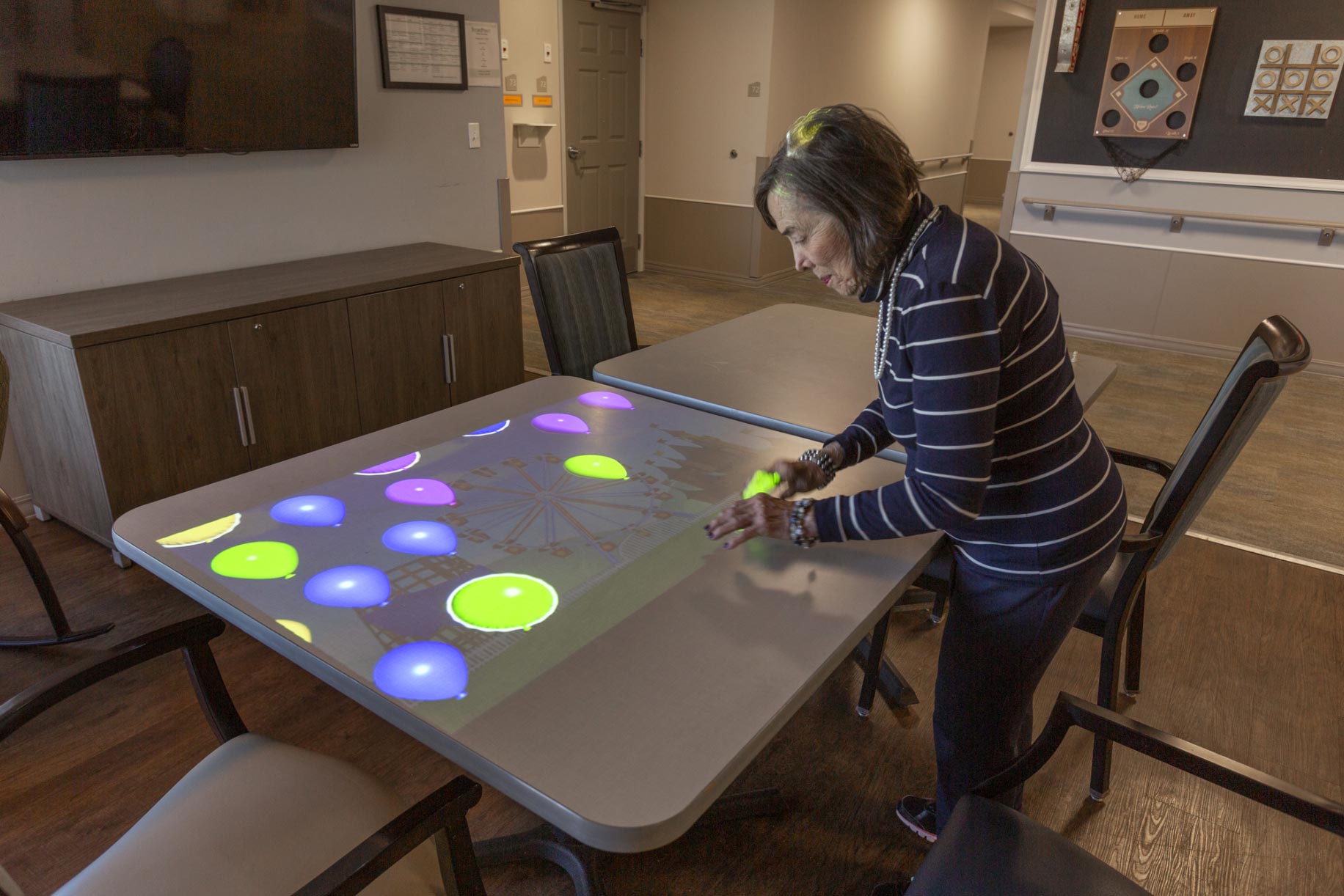Creating a Safe and Encouraging Setting for Alzheimer's Treatment
The development of a risk-free and encouraging environment for people with Alzheimer's is paramount in boosting their quality of life. Discovering these complex methods can expose essential insights right into reliable caregiving techniques that may change the day-to-day experiences of both caretakers and patients.
Comprehending Alzheimer's Demands
Regularly, individuals with Alzheimer's illness exhibit a variety of demands that require customized techniques to care. As the problem advances, cognitive decline manifests in different means, impacting memory, thinking, and even the ability to perform day-to-day tasks. Caregivers have to acknowledge these developing needs to give proper assistance and ensure a greater quality of life for those influenced.
One critical facet of comprehending Alzheimer's demands is recognizing the value of routine and experience. Individuals commonly discover convenience in well-known patterns, which can minimize anxiousness and confusion. Caretakers must strive to create structured daily routines that incorporate significant activities straightened with the person's capabilities and rate of interests.
Additionally, reliable communication is paramount. Individuals with Alzheimer's might have a hard time to share themselves or comprehend intricate language. Caregivers should use simple, clear language, use non-verbal cues, and technique active paying attention to promote understanding and link.
Finally, social and emotional needs can not be neglected. Supplying chances for social communication and keeping relationships can dramatically improve psychological health. Caretakers should urge involvement in neighborhood tasks or household events, advertising a sense of belonging and objective. Recognizing these varied requirements is important for developing a supportive care setting.
Creating a Safe Home
Creating a safe home for people with Alzheimer's illness is vital to reducing threats and promoting freedom. Guarantee that paths are clear and well-lit, as proper lighting reduces disorientation and improves mobility.
Including adaptive features is additionally vital. Install grab bars in washrooms and near stairs, and take into consideration using non-slip floor coverings in wet locations. Additionally, making use of contrasting shades for floors and wall surfaces can assist in distinguishing rooms, aiding to minimize confusion.
Familiarity is crucial for individuals with Alzheimer's. Individualizing the environment with familiar items and pictures can reinforce a sense of belonging and safety - Alzheimers Care Charlotte. It is also useful to have actually a designated area for everyday activities, such as analysis or crafting, which can provide structure to their day
Last but not least, implementing a protected outside area enables safe exploration while getting in touch with nature. By thoughtfully creating the home setting, caregivers can substantially boost the lifestyle for individuals living with Alzheimer's disease.
Enhancing Interaction Skills

Non-verbal interaction, including faces, motions, and touch, plays a vital function in sharing compassion and understanding. Keeping eye get in touch with and a calm demeanor can boost the comfort degree of the person, promoting a sense of safety and security.
Furthermore, it is crucial to exercise active listening. This involves being totally present, revealing persistence, and enabling the person to reveal themselves without interruption. Repeating may be needed; caregivers ought to be prepared to revisit subjects or questions, as people with Alzheimer's may have problem with memory recall.
In addition, making use of visual help or cues, such as pictures or familiar things, can help with acknowledgment and engagement. Inevitably, enhancing interaction skills has to do with building depend on and creating an atmosphere where people feel listened to, valued, and recognized, thus improving their quality of life.
Motivating Social Communication
Fostering significant social communications can significantly improve the health of individuals with Alzheimer's illness. Engaging with others not just aids combat sensations of isolation however additionally promotes cognitive function and emotional health and wellness. Structured social tasks, such as group crafts, video games and arts, or music therapy, create possibilities for homeowners to get in touch with peers and caregivers, which can lead to boosted state of mind and decreased stress and anxiety.
Creating an inviting environment that encourages socialization is necessary. This can be attained by arranging communal spaces that help with interaction, such as comfortable seating areas or activity rooms. In addition, including culturally relevant and familiar tasks can urge and stimulate memories involvement, permitting people with Alzheimer's to really feel more connected to their past experiences.
Additionally, caregivers should be educated to acknowledge and advertise social engagement amongst homeowners. By prioritizing social interaction, we can dramatically enhance the lives of those living with Alzheimer's, cultivating a feeling of community and belonging.
Sustaining Caregiver Health

To sustain caretakers, companies should use routine training and instructional sources to enhance their understanding of Alzheimer's disease and caregiving techniques. Giving accessibility to reprieve treatment solutions permits caretakers to take essential breaks, lowering stress and fatigue - Alzheimers Care Charlotte. Furthermore, promoting a neighborhood with assistance groups can assist in psychological sharing and the exchange of functional have a peek at these guys recommendations amongst caretakers, producing a network of common assistance
Psychological wellness sources, such as therapy solutions, can likewise be important in attending to the psychological toll caregiving can take. By prioritizing caregiver well-being, we create an even more lasting caregiving atmosphere that not just benefits the caregivers themselves but also boosts the total high quality of care gotten by individuals with Alzheimer's. Eventually, sustaining caretakers is a necessary part in fostering a reliable and caring care setting.
Final Thought
Finally, the production of a encouraging and safe atmosphere for individuals with Alzheimer's is vital to enhancing their lifestyle. By focusing on safety and security via thoughtful layout, fostering emotional well-being with acquainted components, and promoting interaction with structured regimens, caregivers can considerably affect the general experience of those affected by this problem. Furthermore, sustaining caregiver well-being is vital, as it inevitably adds to a much more thoughtful and efficient treatment atmosphere.
Repeating might be necessary; caretakers should be prepared to review subjects or inquiries, as individuals with Alzheimer's might struggle with memory recall.

Comments on “Relied On Support and Compassionate Services for Alzheimers Care Charlotte”